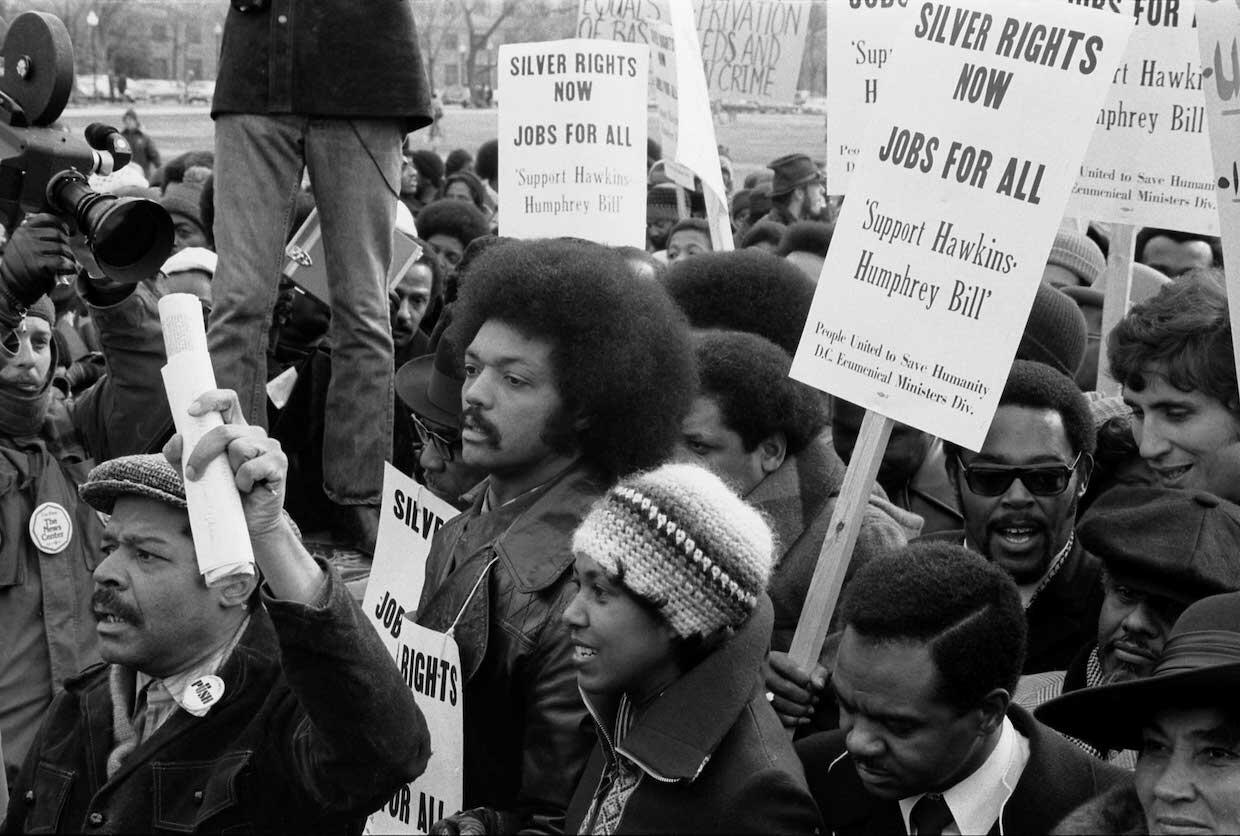
Feb. 4, 2021
McDonald’s is a staple in Black neighborhoods. The civil rights movement shows why.
Share this story
In 1968, following the assassination of Dr. Martin Luther King Jr., major civil rights organizations had to decide how they were going to pivot. Would they continue King’s anti-poverty and anti-war efforts, demanding that the United States create policies to take care of its most vulnerable? Or would they shift, and emphasize building Black economic opportunity through business ownership?
This dilemma was very real, historian Marcia Chatelain says in her book, “Franchise: The Golden Arches in Black America,” in which Chatelain, Ph.D., a professor of history and African American studies at Georgetown University, connects the early days of the U.S. franchising system to shifts in the civil rights movement and American political discourse in the second half of the 20th century.
“These were ideas that were starting to sprout from people like Jesse Jackson, who left [the] Southern Christian Leadership Conference to start … PUSH — People United to Save Humanity,” Chatelain said Wednesday at VCU Libraries’ annual Black History Lecture. “How was this new era of civil rights going to interact with the [Richard] Nixon administration, which had not been a friend of civil rights but had supported a program of Black capitalism?”
In “Franchise,” Chatelain raises this question — and examines the pivot among civil rights organizations toward emphasizing building Black capital that follows — through an examination of McDonald’s and the emergence of Black fast-food franchise owners in the years after King’s assassination. At the heart of her book is a look at how fast-food restaurants so thoroughly saturated Black neighborhoods in the decades since. She said she wanted to tell the story of the rise of McDonald’s against the backdrop of the major societal shifts of the time. Many histories of the company often leave out an important detail, she said, which is that capitalism in the U.S. has been “predicated on the exclusion and exploitation of African Americans.”
“All the elements that make McDonald’s possible in midcentury America — the rise of car culture, the expansion of the highway system, the creation of suburban bedroom communities, the marketing of products to children via television, the accessibility of travel for people who want to use the highways and stop at McDonald’s as a rest stop — all these different systems excluded African Americans or exploited them in different ways,” Chatelain said.
The emergence of McDonald’s as a dominant franchise in America, Chatelain emphasized Wednesday in her virtual talk, is also a story about race. The fast-food chain was a scene for desegregation efforts by civil rights groups — including the NAACP and the Student Nonviolent Coordinating Committee — that demanded the right to be served as customers, hired as employees and later pushed for Black ownership of franchises in Black neighborhoods. Their demands unfolded as McDonald’s was emerging on the national stage and as political discourse on social welfare programs was waning. And McDonald’s became more present in Black communities, Chatelain said, in part because it realized there was considerable potential for economic gain. There was a growing market of consumers who wanted to patronize Black-owned businesses, she said, and the McDonald’s Corp. knew there was potential for government subsidies to Black franchise owners creating businesses through the Office of Economic Opportunity, the agency responsible for administering most of President Lyndon Johnson’s War on Poverty programs in the mid-1960s.
“This original group of Black franchise owners were considered incredibly influential, and they were one of the markers of some type of progress after [the losses] of Dr. King and Robert Kennedy and the election of Richard Nixon,” Chatelain said. “It is important for us to recognize the power of this type of symbolic representation, even if it’s in something that we see as ‘everyday’ as McDonald’s. [In] 1968, it is a very big deal for African Americans to be able to be engaged in this type of business.”
What follows, Chatelain said in her talk at VCU, is a “slow creep of McDonald's into Black neighborhoods” over the next half-century, through business ownership, consumerism and corporate philanthropy. It is a success story, Chatelain said, of cooperation among fast-food companies, Black capitalists and civil rights leaders. But it also is a “troubling” story, she says in “Franchise,” a cautionary tale about the tethering of communities to that corporate philanthropy and of the shortcomings of capitalism as a solution to all problems, one marked today by rising rates of obesity and diabetes among Black Americans.
“[It] emphasizes something I wanted to write about, which is that business and the private sector can never fully address the very real issues of racial and economic justice,” Chatelain said. “This is a public sphere issue that has to be put in the hands of the people.”
This original group of Black franchise owners were considered incredibly influential, and they were one of the markers of some type of progress after [the losses] of Dr. King and Robert Kennedy and the election of Richard Nixon.
Today, she said, Americans find themselves thinking about fast food, health and economics in a number of different ways: health disparities like obesity and hypertension that have acutely affected communities of color, attempts to improve the quality of child nutrition and health, and a protracted labor movement around wages for fast-food workers. In order to craft the best policy responses to those issues, Chatelain said, it is important to be grounded in the nuance and rich history of McDonald’s and other fast-food companies in African American communities and “understand that fast food is not just about our desire to eat.”
“Fast food in the consumer marketplace is about belonging,” she said. “It’s about the kind of inclusion that can serve one set of needs while also starving you of others.”
Subscribe to VCU News
Subscribe to VCU News at newsletter.vcu.edu and receive a selection of stories, videos, photos, news clips and event listings in your inbox.









